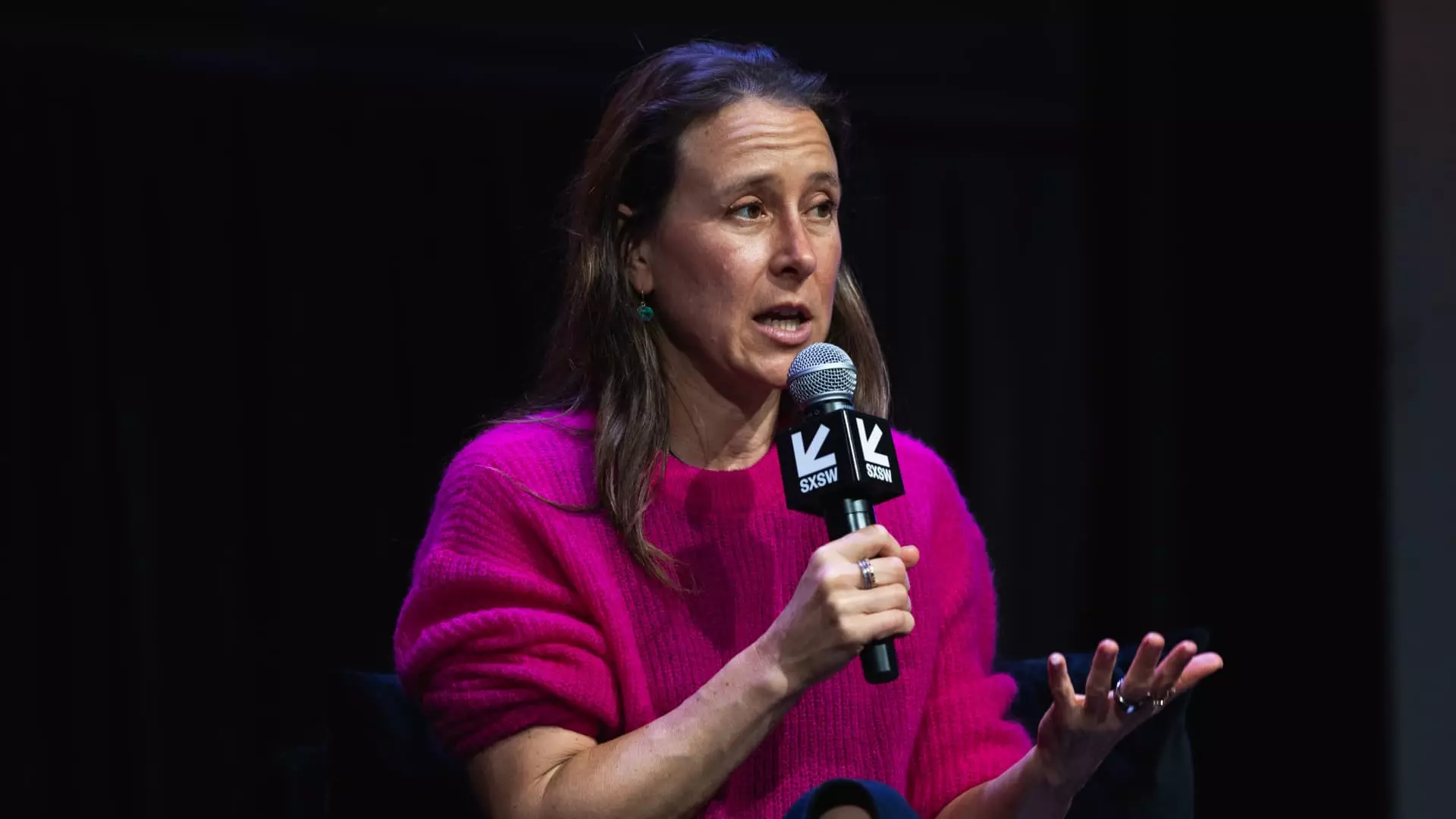The recent bankruptcy filing of 23andMe, a company that was once a poster child for Silicon Valley’s potential, illustrates the fragility of high-flying startups in an ever-evolving marketplace. Once boasting a staggering $6 billion valuation, 23andMe now finds itself entangled in a web of financial strife, with assets and liabilities estimated to be between $100 million and $500 million. But what exactly went wrong for a company that promised to revolutionize our understanding of genetics and ancestry?
CEO Anne Wojcicki, once a beacon of entrepreneurial success, has resigned in the wake of these dire circumstances. While she will remain on the board, her departure from the CEO position signifies a critical failure in leadership that many investors were not eager to see. The resignation could be interpreted as a tacit acknowledgment that the company’s direction has been inadequate, especially as its stock price plummeted from initial highs to a dismal market capitalization of merely $25 million. Those once hopeful about 23andMe might now be left scratching their heads, pondering how a company that appeared to have the Midas touch in the realm of genetic testing could fall so dramatically.
A Flawed Business Model
The downfall of 23andMe can largely be attributed to its inability to pivot effectively in line with market demands. Initially celebrated for its at-home DNA tests, the company rode a wave of consumer interest that garnered millions of customers keen on unlocking their genetic secrets. However, as the novelty wore off, the reality set in: the subscription-based model designed to sustain recurring revenue fell flat. Struggling to draw income from research and therapeutics, 23andMe failed to carve out a sustainable business model. In an industry driven by innovation and the need for constant engagement, stagnation can be fatal, and 23andMe’s executives simply misjudged the timeline and the demands of their user base.
Wojcicki’s attempts to take the company private were rejected by independent directors who recognized the need for a radical change rather than a simple restructuring. This was not merely a disagreement about strategy; it highlighted distressing fissures within the company’s governance. The special committee’s decision speaks volumes about the broken trust between Wojcicki and other board members, raising critical questions about leadership accountability and strategic foresight.
The Dark Cloud of Privacy Concerns
As if bankruptcy weren’t enough, 23andMe has also been plagued by severe privacy concerns, climaxing in a high-profile data breach. Reports surfaced that hackers managed to access the personal information of nearly 7 million customers, triggering widespread public alarm and legal scrutiny. California Attorney General Rob Bonta issued consumer alerts, advising residents to reconsider sharing their genetic data with the company. Such breaches erode consumer trust, an essential currency for a data-centric business.
Though the company has assured customers that operations will continue as usual, consumers remain skeptical. Can and should users still trust 23andMe with their sensitive genetic information? This skepticism could have long-lasting implications for the company’s ability to recover, regardless of any court approval for asset sales through Chapter 11.
The Path Forward: Uncertainty and Potential
With an interim CEO poised to manage the ship through turbulent waters, experts have pointed out that the path leading forward is fraught with uncertainty. While Wojcicki intends to bid independently to salvage something from the ashes of 23andMe, it raises the question of whether her vision still has relevance in today’s tech landscape. The company faces a critical crossroad; maintaining transparency and consumer trust must be prioritized now more than ever.
23andMe’s tale serves as a cautionary narrative about the pitfalls of inflated valuations and the unrealistic expectations that often accompany them. As companies rush to market, the focus on foundational strategy and consumer engagement sometimes gets lost in the hubris of rapid growth. In a world continually shifting towards privacy rights and ethical management of personal data, the lessons drawn from 23andMe’s journey should echo throughout the tech industry. The question remains: can 23andMe rise from this downfall, or is it destined to become a cautionary tale of what happens when ambition overtakes accountability?

